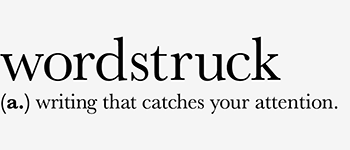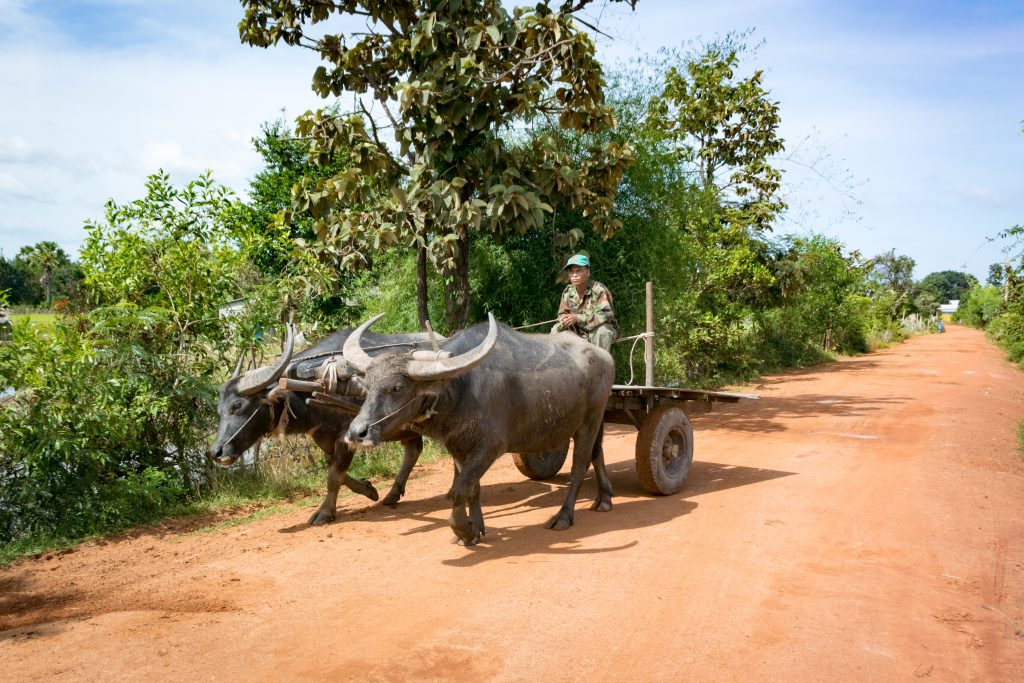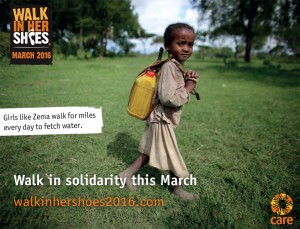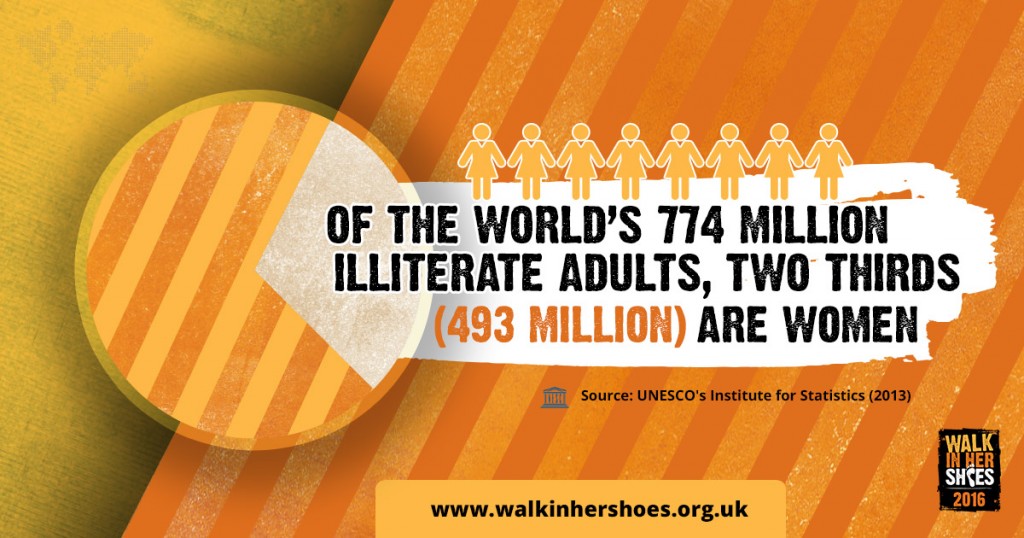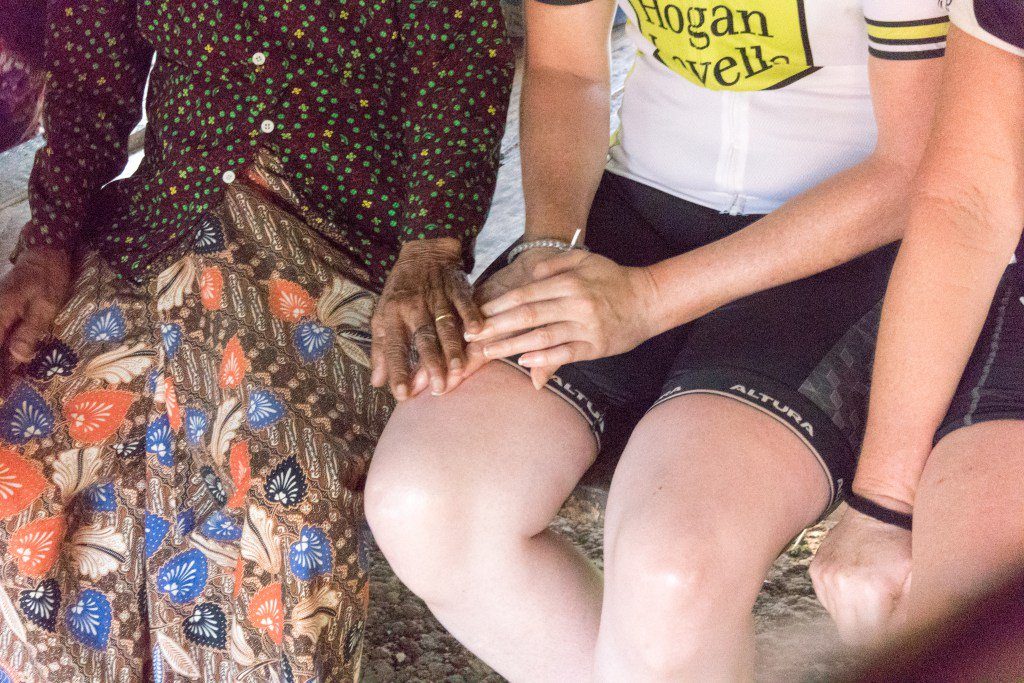
One hand belongs to a project manager from a prestigious international law firm. The other to an 81-year-old villager and survivor of the most brutal, insidious civil war.
We are in Cambodia. We have cycled from Paksé in nearby Laos, to a small village community near Battambang to see the difference that CARE International is making to people’s lives through its micro-finance initiative Lendwithcare.
The 25 cyclists are a range of ages and fitness levels and we come from different backgrounds, but we are all Lendwithcare supporters, helping people in 10 developing countries around the world to work their way out of poverty through small loans.
On the Lendwithcare website we choose businesses to invest in, from grocery stalls to hairdressers, garment making to vehicle repairs. We see the people, learn about their lives and challenges, and now we have the chance to meet some of them in person.
We have pedalled our way through days of 100km rides; powered up red, dusty dirt tracks and negotiated busy villages to thousands of shouts of hello, waves, smiles and some bemused looks. Sweaty and lycra-clad, we make rather odd house guests, and yet we here we are, being warmly welcomed by the family of Khloerb Bou.
A warm welcome
Like most buildings in this rural area, the house appears somewhat ramshackle, made from wood and tin, propped up on stilt posts to provide an open lower area that children and the occasional chicken wander through; while sleeping accommodation is on an upper platform.
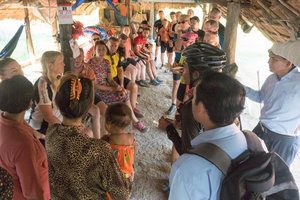
Lenders meeting entrepreneurs
Khloerb Bou is out fishing, but we are ushered in by his wife and daughters, one of whom carries a small child on her hip. An elderly relative, part of the extended family, sits beside one of our party, Christine, and wordlessly takes her hand.
We ask questions through our interpreters and learn how a loan from CCSF, supported by Lendwithcare, has helped this family ensure a good crop of jasmine rice, providing both food and income for the year. They also used part of the loan to invest in a new business for their daughter and her husband, who now make iron goods, such as doors, fences and roofing, in another village around 20km away.
Micro-finance
Micro-finance is a popular business here in Cambodia, and we have seen evidence of several different institutions on our travels. From Khloerb Bou’s family we learn that not all micro-finance institutions (MFIs) are created equal. His wife tells us that without the loan from their local CCSF office, they would have had to borrow from another institution with interest rates of around 10% per month, compared to just 1-2%.
It’s not uncommon for people to request loans, repay them and then request another. When your main income depends on a rice crop that you harvest once or twice a year, you are at the mercy of a changing climate and under threat from pests and disease. What you earn depends on the fluctuations of a competitive market and with income at around $1-5 dollars a day, there’s little room for error. Like many businesses, a loan helps with cash flow.
CARE International began with packages sent by American families to people in Europe, recovering from the devastation of World War II. Nowadays the care packages take the form of materials and expertise designed to provide immediate and longer term relief and reconstruction after disasters such as floods and earthquakes.
The personal family to family connection continues through Lendwithcare, where, individuals and organisations can support people by investing in their business and helping them work their way out of poverty.
Hopes and dreams
Every entrepreneur we met wanted to grow their business. Some sought to improve their rice yield through buying more land, harvesting more quickly by using a tractor, or hiring more help; while others diversified, buying cows, fishing, growing cassava or operating small stalls. Ultimately these improvements are about making life better for them and their families – sending their children to school, buying a moped, improving their homes.
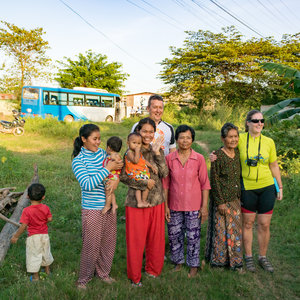 Once we’ve asked all our questions, the family want to know about us. They ask about our brothers sisters, parents. They are not so much interested in what we do, as who we are. There are more smiles and laughter at the crazy Westerners who have cycled all this way.
Once we’ve asked all our questions, the family want to know about us. They ask about our brothers sisters, parents. They are not so much interested in what we do, as who we are. There are more smiles and laughter at the crazy Westerners who have cycled all this way.
Our Khmer is limited to ‘thank you’ and their English to ‘hello’, but the connection forged through smiles, eyes and all enveloping hugs is richer and deeper than words.
The interlinked fingers of two women, represent two startlingly different life experiences. Here they are linked together, through the simple action of people helping others. It’s a powerful illustration of the openness and generosity that’s at the heart of Lendwithcare.
If you’ve been inspired to find out more about Lendwithcare, please visit their website. They are currently offering gift vouchers which make a great and thoughtful Christmas gift and for a limited period, you can buy one and get another free.
This is a charity that I am very proud and happy to support. They did not ask me to write this post and I funded my trip to Laos and Cambodia myself.
